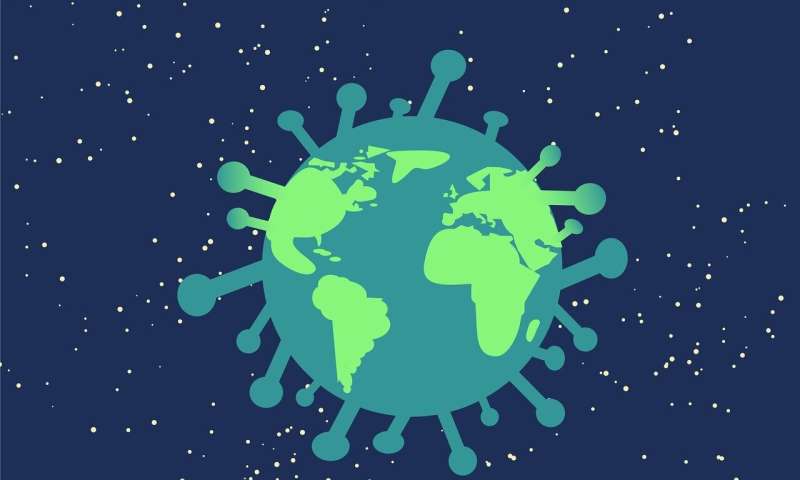Credit: Pixabay/CC0 Public Domain
India's capital New Delhi on Sunday extended its lockdown, as the country's COVID-19 crisis grew with infections and deaths hitting record highs.
The healthcare system has struggled to cope with the huge surge, with reports of severe oxygen and medicine shortages and patients' families pleading for help on social media.
India recorded 349,691 fresh cases and 2,767 deaths in the last 24 hours—the highest since the start of the pandemic.
The northern megacity—home to 20 million people and the worst hit in India—had imposed a week-long lockdown on Monday.
"We have decided to extend the lockdown by one week," Delhi Chief Minister Arvind Kejriwal said.
"The havoc of corona(virus) continues and there is no respite."
Delhi on Saturday reported just over 24,000 new cases—with more than one-quarter of those tested returning positive results—and a record-high 357 deaths.
Prime Minister Narendra Modi said in a monthly radio address Sunday that India had been shaken by a "storm" as he called on people to get vaccinated and not "get swayed by any rumour about the vaccines".
The country has administered almost 141 million vaccine shots so far, but experts say the mass inoculation programme needs to be significantly stepped up in the nation of 1.3 billion people.
There has been growing criticism of Modi's government over allegations it was caught underprepared ahead of the surge.
On Sunday, Twitter confirmed it withheld dozens of tweets critical of the crisis after a legal demand from New Delhi.
"If (the content) is determined to be illegal in a particular jurisdiction, but not in violation of the Twitter rules, we may withhold access to the content in India only," the social media giant said in a statement.
Some tweets included comments, including from regional opposition lawmakers, about the overwhelmed healthcare system.
The IT ministry told AFP it asked Twitter to remove 100 posts, adding that there was "the misuse of social media platforms by certain users to spread fake or misleading information and create panic about the COVID-19 situation in India".
International assistance
Shocking stories of patients dying outside hospitals have spurred promises of support from the international community.
US Secretary of State Antony Blinken on Sunday tweeted that the administration "will rapidly deploy additional support to the people of India".
European Commission chief Ursula von der Leyen tweeted that the organisation was "pooling resources to respond rapidly to India's request for assistance".
Arch-foe Pakistan offered medical equipment and supplies after Prime Minister Imran Khan tweeted prayers for a "speedy recovery".
Other countries imposed travel restrictions.
Neighbouring Bangladesh, which shares a 4,000-kilometre (2,500-mile) border with India, will halt land crossings for two weeks, Foreign Minister A.K. Abdul Momen told AFP on Sunday.
Oxygen crisis
The Indian Express reported Sunday that Vinod K. Paul, a member of government advisory body NITI Aayog, warned in a presentation to the prime minister and state leaders Friday that daily cases could rise to as high as half a million by mid-May.
Some states and territories have imposed curbs on movement and activities, with Indian-administered Kashmir on Saturday announcing a weekend lockdown.
Ambulance sirens echoed through empty streets in the northern city of Lucknow in India's most populous state, badly hit Uttar Pradesh, during its weekend lockdown.
"No one's answering... calls. Where do I take the patient to?," Abhishek Gaurav, 40, told AFP as he searched for a hospital bed for his friend in Lucknow. His pleas were echoed by others.
In Delhi, there were chaotic scenes outside some hospitals.
"He was gasping for air, we removed his face mask and he was crying and saying 'save me, please save me'," Mohan Sharma, 17, said of his father, who died outside a northeast Delhi hospital.
"But I could do nothing. I just watched him die," Sharma told AFP.
The government said Sunday that more than 500 oxygen-generation plants were to be set up in hospitals. Oxygen supplies were also being bolstered through special trains and airlifts of containers from other countries.
© 2021 AFP
























